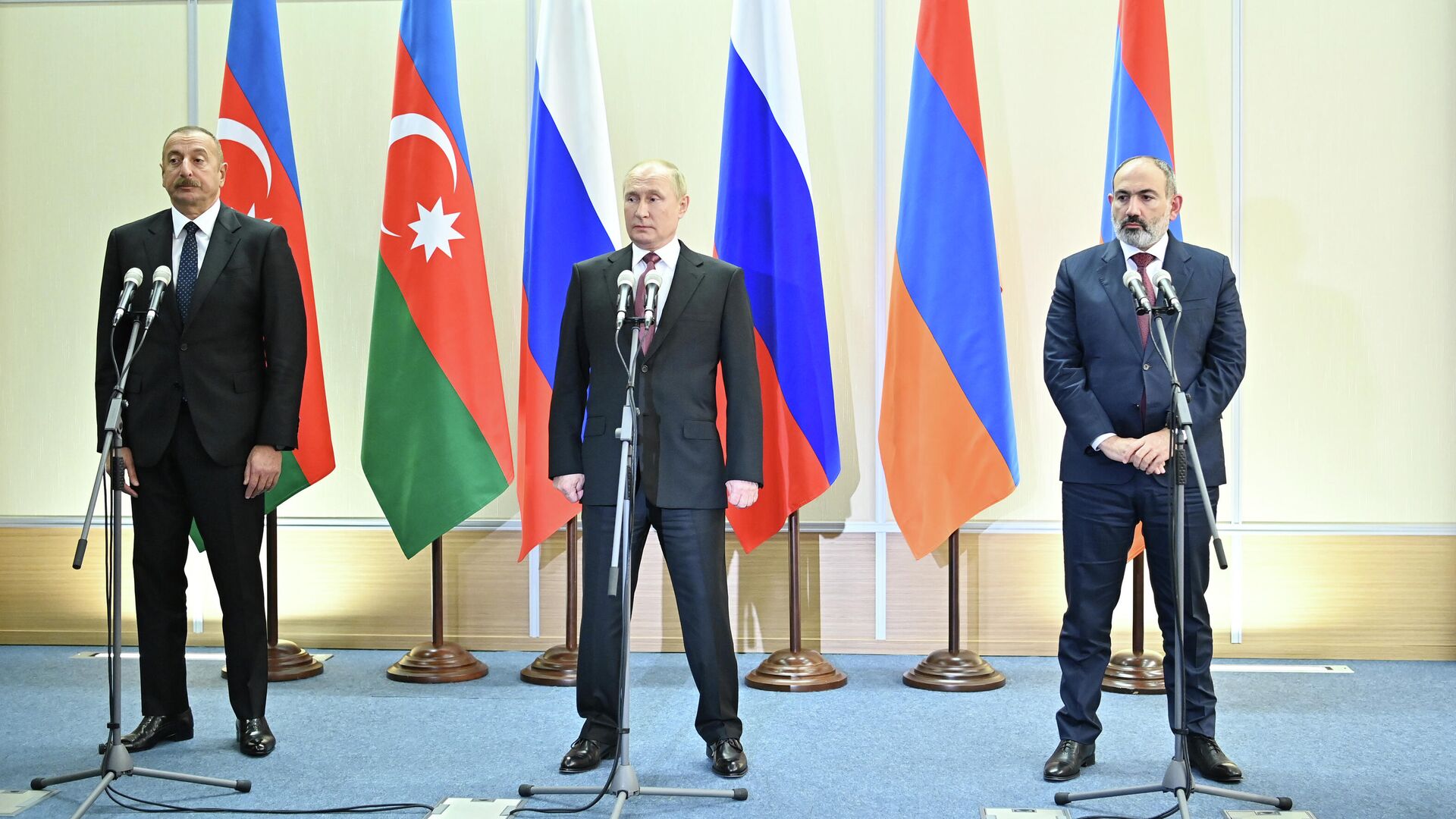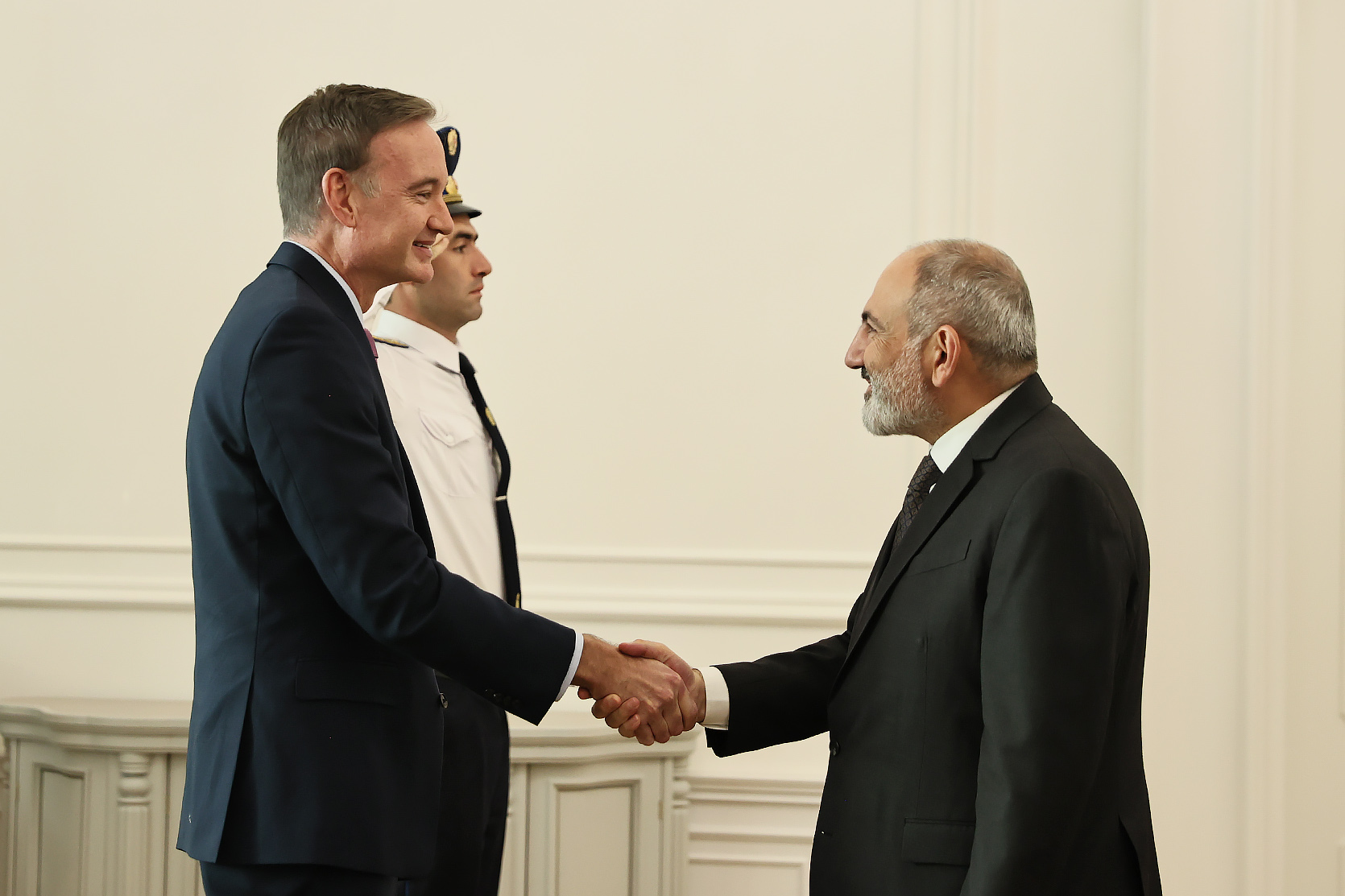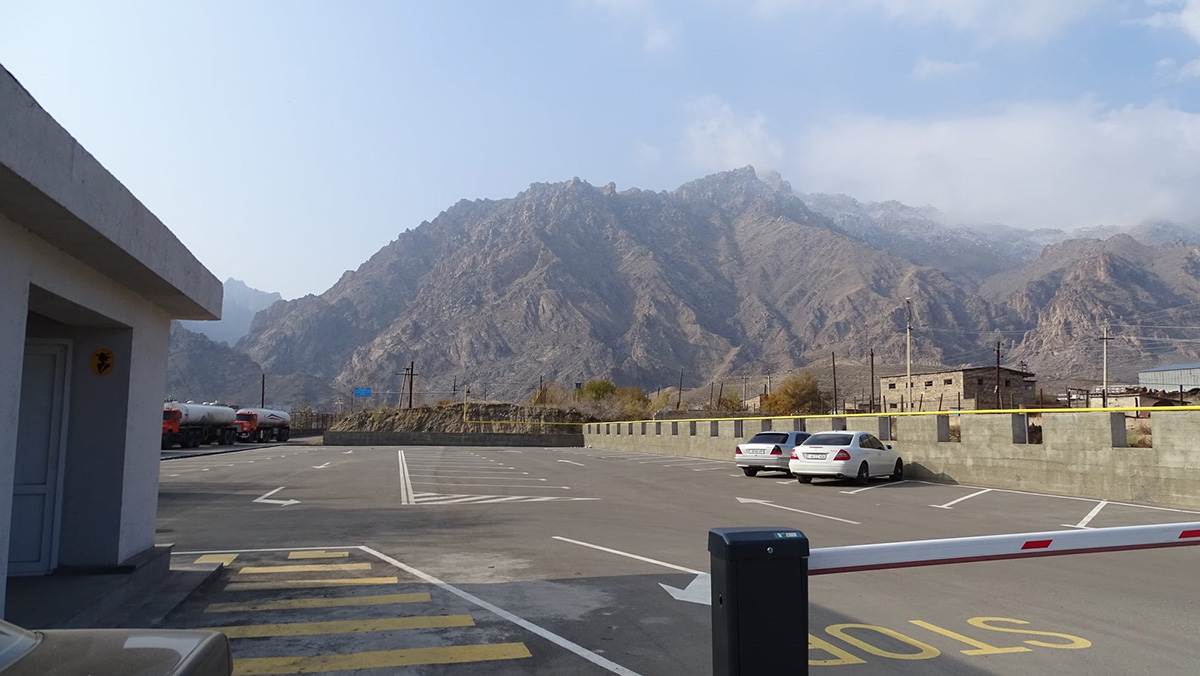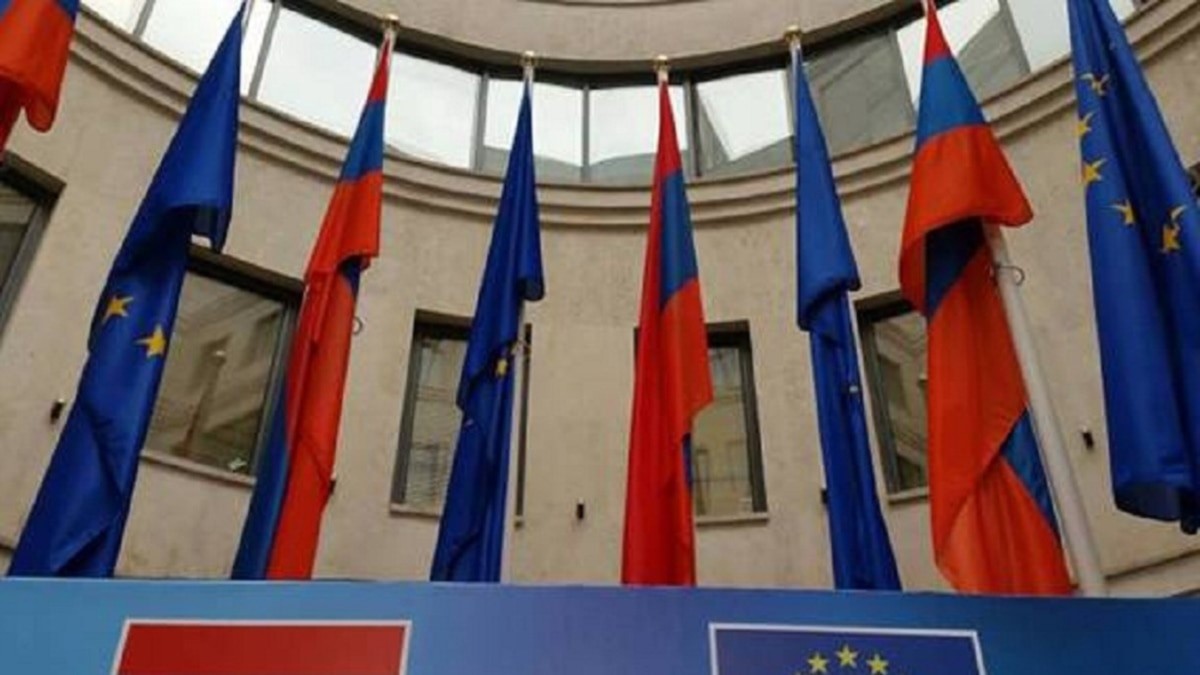Opinion: 'Armenia and US sign strategic partnership charter as legacy for Trump'
US-Armenia strategic partnership agreement
Armenian Foreign Minister Ararat Mirzoyan and US Secretary of State Antony Blinken signed a Strategic Partnership Charter between the two countries in Washington. The document formalizes a mutual commitment to strengthening relations, particularly in the fields of defense and security.
“A strong, independent, sovereign, and democratic Armenia, capable of protecting its sovereignty, territorial integrity, and the inviolability of its internationally recognized borders, is crucial for lasting regional security and prosperity,” the charter states.
The Armenian Foreign Minister emphasized that the charter lays a solid foundation for deepening bilateral relations. According to Ararat Mirzoyan, Yerevan intends to continue its cooperation with the new US administration to achieve its “ambitious goals.”
Political analyst Ruben Mehrabyan is confident that the document was coordinated with the incoming US administration and that it will adhere to the principles outlined in the charter.
“In its final week in office, the Democratic administration institutionalized the progress made in relations with Armenia, leaving it as a political legacy for the incoming Republican administration,” the JAMnews analyst stated.
Armenia and the United States intensified their political dialogue in 2024. On 5 April, a trilateral meeting between Armenia, the US, and the EU took place. On 11 June, a session was held in Yerevan within the framework of the Armenia-US Strategic Dialogue. Both sides expressed their intent to elevate relations to the level of strategic partnership.
- Armenia takes first steps toward EU membership: Government approves Eurovote plan
- “Armenia provided with safety cushions” – Opinion on the Brussels meeting
- U.S. military representative will serve as an advisor in Armenia’s Ministry of Defense
Three key provisions of document highlighted by Mirzoyan and Blinken
Before signing the charter, US Secretary of State Antony Blinken and Armenian Foreign Minister Ararat Mirzoyan spoke about its significance. Blinken announced that the US would soon send a team of customs and border security experts to Armenia:
“They will work with Armenian counterparts to develop capabilities and skills in border security, strengthen security cooperation, and enhance Armenia’s peacekeeping potential through exercises such as Eagle Partner [joint US-Armenian military drills].”
In his remarks, Ararat Mirzoyan emphasized Armenia’s commitment to:
- Joining the “Global Coalition to Defeat ISIS,” reaffirming its dedication to combating international terrorism;
- Initiating negotiations with the US to sign a document known as the “123 Agreement,” which enables cooperation in the field of nuclear energy.
“This agreement will provide a foundation for cooperation in the peaceful use of nuclear energy and underline our commitment to developing peaceful nuclear energy while adhering to the highest standards of safety, security, and non-proliferation,” he explained.
Broad range of defence and security cooperation programs
The Strategic Partnership Charter highlights that cooperation between Armenia and the United States in the fields of defence and security benefits both nations and the entire region. Yerevan and Washington plan to implement a broad spectrum of cooperation programs in this area. Specifically, they aim to:
- Initiate bilateral consultations on defence issues;
- Support the Armenian Armed Forces through professional military training;
- Expand security cooperation and reform programs aimed at enhancing the operational interoperability of Armenia’s military and strengthening its defence capabilities;
- In the context of combating the proliferation of weapons of mass destruction and dangerous technologies, the US plans to assist in developing the knowledge and skills of Armenia’s border guards and State Revenue Committee officers;
- Continue consultations on existing or emerging cyber threats.
Support for Armenia’s Crossroads of Peace project
The charter emphasizes that a “dignified and lasting peace” is fundamental for a more stable future and prosperity across the South Caucasus:
“The US supports the peace process between Armenia and Azerbaijan, including the delimitation process based on the 1991 Alma-Ata Declaration.”
Additionally, the US advocates for the unblocking of regional transport communications, grounded in the principles of sovereignty and jurisdiction of the respective countries. In this context, the charter mentions the Armenian government’s Crossroads of Peace project:
“Recognizing the challenges posed by Armenia’s lack of access to the sea and limited entry to global trade markets, Armenia and the US aim to deepen cooperation to integrate Armenia into broader regional transport networks and connectivity initiatives, particularly by providing robust political support and promoting the Crossroads of Peace project.”
Opportunities for trade and investment growth
Yerevan and Washington will expand cooperation in the economic sphere. The charter states that the United States supports Armenia’s efforts to integrate into the global economy.
The two sides intend to explore opportunities to increase bilateral trade and investment. Discussions also include boosting energy production in Armenia and diversifying energy supply sources:
“This includes measures aimed at connecting Armenia to regional and European energy markets.”
Specific sections of the charter focus on fostering connections between the peoples of the two countries, cultural exchanges, and strengthening democracy. The document also addresses the crisis Armenia faces with the relocation of over 100,000 compatriots from Nagorno-Karabakh. The US plans to continue supporting Armenia by providing assistance to refugees from Nagorno-Karabakh.
Political analyst Ruben Mehrabyan
Political analyst Ruben Mehrabyan explains that the United States signs charters or statutes of strategic partnership with various countries. Addressing concerns raised on social media, he clarifies that signing a document titled “charter” rather than “treaty” or “agreement” does not change its legal significance:
“This does not mean that the partnership is not strategic, as some pro-Russian circles are attempting to manipulate through wordplay.”
He emphasizes that the strategic partnership charter could have been signed back in November had the US presidential election results been different. According to him, “additional time” was needed to coordinate the content of the document with the new administration and incorporate its recommendations:
“There is not a single provision in this charter that the new administration opposes. The Trump administration will adhere to this document because institutions govern in the United States.”
Mehrabyan notes, “In the past, the US provided us with assistance, but now we are dealing not with American aid but with strategic objectives.”
Commenting on defence cooperation, Mehrabyan observed that Yerevan and Washington have outlined steps “to strengthen Armenia’s territorial integrity, independence, sovereignty, and defence capabilities.”
He does not rule out that Armenia’s membership in the Russian-led military bloc CSTO may hinder deeper defence cooperation with the US. However, Mehrabyan is confident that this obstacle will soon be overcome:
“Yes, we will deepen cooperation with the US. Armenia’s armed forces will adopt NATO standards because there is simply no alternative.”
The text of the charter expresses strong political support for the Crossroads of Peace project, leading analysts to conclude that Washington opposes Azerbaijan’s corridor-based approach.
This refers to Azerbaijan’s demand that Armenia provide the “Zangezur Corridor,” a route linking Azerbaijan to its Nakhchivan exclave. Armenian authorities have long stated their readiness to unblock all communications but categorically refuse to provide a “corridor,” arguing that the term implies a loss of sovereign control over the territory. Meanwhile, Russia expects to control this route, but Armenia’s leadership has ruled out such an arrangement.
“What James O’Brien declared during the Congressional hearings in November 2023 wasn’t his or the Biden administration’s idea; it reflected the United States’ bipartisan strategic interests. This course will continue under the Republican administration as well. The so-called ‘Middle Corridor’ [connecting China to Europe] is an American-backed project. This means that any discussions about a ‘corridor’ in the Russian-Azerbaijani sense are irrelevant and meaningless. It won’t happen,” the political analyst explained.
Ruben Mehrabyan also highlighted the importance of deepening economic and energy ties, particularly initiating negotiations on nuclear energy cooperation with the US:
“This involves the transfer of nuclear technologies, which would allow Armenia to place orders for a new nuclear power plant with American companies. I hope Armenia will be able to sign this agreement with the new US administration.”
When asked about Armenia’s decision to join the “Global Coalition to Defeat ISIS” and whether it was a prerequisite for signing the charter, the analyst replied:
“It wasn’t a condition. It stems from Armenia’s stance and worldview. It’s an area for cooperation with the US in the defence sector.”
He also noted the positive significance of the expected visit of a US customs and border security team to Armenia:
“This team will help enhance the capabilities of Armenia’s Border Service. As a result, Armenia will be able to take full control of its borders, ensuring there isn’t a single border guard holding a Russian passport.”
The Russian FSB Border Guard Service currently protects Armenia’s borders with Turkey and Iran under a 1992 interstate agreement on the status and operation of Russian border troops in Armenia. Recently, discussions have intensified about phasing out the services of Russian border guards. They have already withdrawn from Zvartnots Airport, border regions adjacent to Azerbaijan where they were stationed after the 2020 Karabakh war, and checkpoints on the state border with Iran.
According to Mehrabyan, the Strategic Partnership Charter provides an opportunity to address numerous issues as it “establishes clear goals, obligations, and directions where Armenia’s and the US’s interests align.”
























